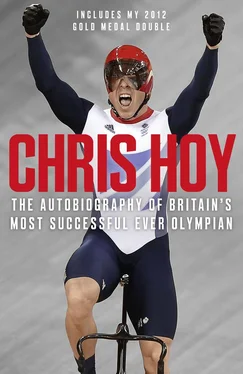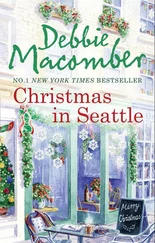We were unusual – ahead of our time, perhaps – in that we had a female coach, even if Miss Paton probably assumed the position by default. I don’t think any other teachers were particularly interested in football, so I think it fell to her to run the team. And yes, we had the mickey taken out of us by other teams for having a female coach in those unenlightened times, but she was clearly a fan of the beautiful game.
As were we too, but that didn’t stop us from being rubbish. I cringe now in recalling some of the beatings we suffered at the hands of other schools. We weren’t just beaten; we were usually – to use a good Scottish word – gubbed. A seven-nil defeat by Juniper Green sticks in my mind for some reason, but I don’t know why, because that wasn’t too unusual. There was only one team in the whole of Edinburgh that we seemed to be able to beat: poor, hapless Bonaly.
Despite all that, I loved football. I played midfield, though positions were fairly arbitrary. We played on these big old pitches, with no nets in the goal. It was ridiculous, no concession being made to the fact that we were about four feet tall, with tiny little legs. On the full-sized pitches we looked like the Lilliputians from Gulliver’s Travels, and games would consist of the ludicrous spectacle of 20 eight-year-olds chasing the ball, like bees swarming around honey. It didn’t matter what position you were supposed to play in, there was only one place to be – as close to the ball as possible. It was like one of those medieval games of street football, involving hundreds of people, a free-for-all with no organization. As for passing – forget it. Poor Miss Paton, who could often be seen enjoying a cigarette on the touchline, wasn’t really able to impart any tactical instructions, or strategy – though I suppose you could say that we were allowed to express ourselves!
As well as playing myself, after a fashion, I became absolutely obsessed with Heart of Midlothian, the team that played about half a mile from my house, at Tynecastle Stadium. ‘H-E-A … R-T-S, if you cannae spell it, then here’s what it says … Hearts, Hearts, glorious Hearts,’ as the club song goes. I was a committed Jambo – Jambo being an abbreviation of ‘Jam Tarts’, the team’s other name – and occasionally went to games with the son of our local butcher, Bob the butcher. I didn’t go with my dad, because he was a supporter of Hibs, or Hibernian, the other Edinburgh club. When I didn’t go to games I’d listen on the radio, or watch the results coming in on the BBC’s teleprinter at 4.45 in the afternoon. The Hearts score that spewed out of that machine could make or break my Saturday evening. Not that, as a seven-year-old, I had particularly exciting plans most Saturday evenings.
The worst season was 1985/86, and it had a profound effect on me. I was nine going on ten, and at the zenith of my Hearts obsession. Now, anyone who knows anything at all about Scottish football, and especially Hearts, will not need to be told about the 1985/86 season. But for a nine-going-onten-year-old it was traumatic, to say the least.
The players, scores and games are burnt into my memory, engraved on my consciousness. To this day, I can still name the 1985/86 team: Henry Smith, Walter Kidd, Sandy Jardine, Craig Levein, Brian Whittaker, Gary Mackay, Neil Berry, Kenny Black, John Colquhoun, Sandy Clark, John Robertson.
These players, whom I wouldn’t hesitate to call my boyhood idols – with John ‘Robbo’ Robertson, Gary Mackay and John Colquhoun particular favourites – took Hearts to the top of the Scottish Premier Division, and within one game of winning the league title for the first time in 26 years. There was no better time to be a Jambo. And, ultimately, no worse time. On the final day of the season Hearts were leading Celtic by two points. All they needed was a draw against midtable Dundee. All they needed to do, most of us imagined, was to turn up.
In those days, it was two points, rather than three, for a win. Going into that final day, Hearts also had a goal-difference advantage on Celtic – they were on plus-28, with Celtic on plus-24. So if, in the worst-case scenario, Hearts lost and Celtic won their game against St Mirren, the Glasgow club would have to do so by at least three goals, unless Hearts lost by more than one. Got that?
On the day, Celtic won 5–0. And Hearts lost 2–0. The impossible, in other words, happened. And thousands of scarves and T-shirts, already emblazoned with ‘Heart of Midlothian, League Champions 1985–86’, had to be discarded. Talk about snatching defeat from the jaws of victory. And don’t even get me started on the conspiracy theories …
I was crushed – and if I hadn’t been, then I would be a few days later, when Hearts faced Aberdeen in the Scottish Cup Final, only to lose 3–0. It was bordering on cruelty. And, to be honest, I don’t know if I ever really rediscovered my passion for football. These days, I couldn’t name a single player in the Hearts team, which is a shame, because I would have liked to keep my interest going. But I feel that football has changed so much, and that a lot of what was so great about it – games packed with genuine and committed fans watching players they could identify with – has disappeared.
If anything positive came of the experience of following Hearts through that rollercoaster season, then it was in the form of an important lesson, and a good one to learn when you’re young. It could be summed up thus: don’t get your hopes up; don’t take anything for granted; expect nothing. These, as I would find out, would be useful mottos for any Hearts fan, or, for that matter, Scotland fan – when it came to either football or rugby.
There’s a postscript to my interest in, or obsession with, that legendary Hearts team – and they remain club legends, in part because we’re still waiting for a first league title since 1960.
Ten years later, John Robertson came into the Texaco garage where I, by now an 18-year-old about to head off to university, was working. ‘Robbo’ had been my ultimate hero, as he was to most Hearts fans – he is the most prolific goal-scorer in the club’s history. And here he was walking across the forecourt and into my shop! I was completely star-struck, and as he walked towards me I realized something else: he was tiny. He could barely see over the counter.
Still, it was quite a thrill to meet my boyhood hero, even if I was a little over-awed. In my flustered state I think all I managed to say was, ‘Pump four, mate? That’ll be sixteen quid.’
After our brief and largely unsuccessful foray into football, rugby took over. Rugby was a big part of the culture of the school, though there was no particular pressure to play, and it wasn’t cliquey, as I know it can be at some schools. Watson’s was a nice school, with a good atmosphere. There was a real cross-section of people among the teachers and pupils, and I felt fortunate to go there.
My parents weren’t wealthy – Dad working in the building industry, eventually as a chartered surveyor, Mum as a nurse – and I know they had to make sacrifices to send my sister, Carrie, and me there. Not that they were explicit about that to us, but we were made aware that we were lucky to go to a good school, and we both knew, I think, that we shouldn’t waste the opportunities available to us there. I tried to do the best I could, because I was also aware, from a young age, that although sport seemed the most important thing in my life, ultimately education would be more important. After all, as I was later told by my school’s careers adviser, ‘You’re not going to make a living out of sport.’ (OK, so this turned out to be bad advice … but I wasn’t to know it at the time – and neither, to be fair, was he.)
Читать дальше












